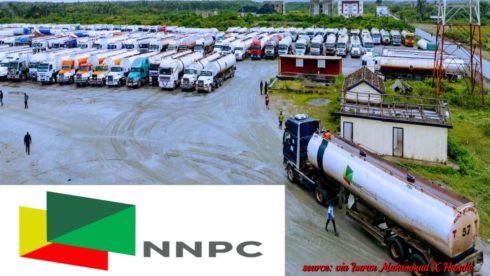The Nigerian National Petroleum Company Limited (NNPCL) has announced a significant increase in the price of Premium Motor Spirit (PMS), commonly referred to as petrol. As per reports, petrol prices in Lagos and nearby areas have risen from N980 to N1,025 per litre. This development follows multiple adjustments in recent months, positioning this as the third price change recorded in both September and October 2024.
This latest increment is aligned with the government’s ongoing deregulation policy, which allows petrol prices to be influenced by supply-demand dynamics. This shift reflects the government’s stance on reducing subsidies and moving towards a market-determined price system, impacting Nigerian households and businesses alike.
NNPCL: Deregulation Policy Driving Price Changes in Fuel Market
The latest increase in petrol prices by NNPCL comes in the wake of the Nigerian government’s adherence to a deregulation policy. This policy eliminates traditional subsidies on fuel, allowing market forces to determine pricing. The objective is to create a sustainable economic framework where petrol prices reflect real-time market conditions. This shift, however, has triggered debates across the country as Nigerians brace for economic adjustments.
As part of this deregulation initiative, NNPCL has periodically adjusted petrol prices over the past few months, leading to higher costs for citizens. With reports indicating new prices in Abuja reaching N1,060 per litre and N1,025 per litre in Lagos, consumers are facing rising transportation and household expenses, leading to significant financial strain for many Nigerians.
Impact of Petrol Price Hike on Nigerian Consumers and Businesses
The increased petrol price is anticipated to have far-reaching impacts on both individual consumers and the business sector. For many Nigerian households, the additional costs of fuel are expected to drive up transportation expenses and, in turn, lead to an increase in prices for essential goods. Rising fuel costs also affect the cost of running generators, a primary energy source for households and small businesses in a country plagued by frequent power outages.
Businesses, especially those reliant on transportation and logistics, are likely to pass on increased operating costs to consumers. Small and medium-sized enterprises (SMEs), which form a large part of the Nigerian economy, are expected to be significantly impacted, as they struggle to absorb higher fuel costs amid uncertain economic conditions.
Government and NNPCL Justify Price Hike Amidst Criticism
In response to widespread criticism following the petrol price hike, both the Nigerian government and NNPCL have defended their decision, citing global oil price fluctuations and foreign exchange pressures as primary factors. NNPCL emphasizes that deregulation enables the organization to respond to international market trends, ensuring availability and reducing the risk of shortages.
Government officials argue that deregulation is crucial for long-term economic stability and sustainable energy pricing. They claim that subsidized fuel prices have drained national resources for years, and that removing these subsidies will ultimately benefit the country’s economy. However, critics argue that this approach disproportionately affects ordinary Nigerians, who already face economic hardships.
Public Reaction to the Latest Petrol Price Adjustment
The recent fuel price increase has sparked reactions across Nigeria, with citizens voicing concerns over its impact on daily living costs. Many have taken to social media platforms to express frustration, criticizing the government for failing to provide adequate alternatives. The increase has also prompted organized labor groups to discuss the possibility of nationwide strikes, as workers demand relief from escalating costs.
Meanwhile, public protests and calls for government intervention have gained momentum in various cities, underscoring the widespread discontent. While officials urge Nigerians to adjust to the new pricing, activists and civil society groups continue to call for policy changes, demanding affordable fuel prices to alleviate the burden on ordinary Nigerians.
Long-term Economic Implications of the Deregulation Policy
The latest petrol price hike highlights the complexities of Nigeria’s economic reform agenda, particularly concerning fuel subsidy removal. While proponents argue that deregulation will attract private investments and reduce fiscal strain, skeptics caution that it may deepen poverty and widen economic inequality in the short term. The long-term impacts of this policy shift on Nigeria’s economy and citizens’ purchasing power remain uncertain.
Analysts suggest that for deregulation to succeed, the government must implement supportive measures, such as improving public transportation and providing alternative energy options. As Nigerians grapple with rising fuel costs, experts emphasize that strategic investments and inclusive policies are essential for mitigating the potential adverse effects of fuel price deregulation.
Table of Contents
Discover more from OGM News NG
Subscribe to get the latest posts sent to your email.














